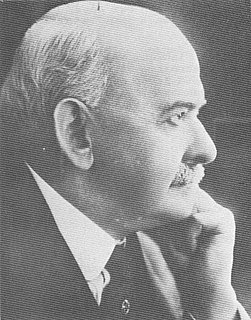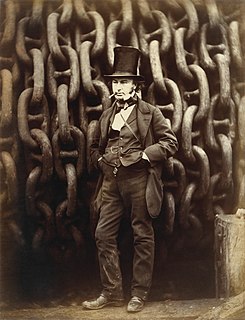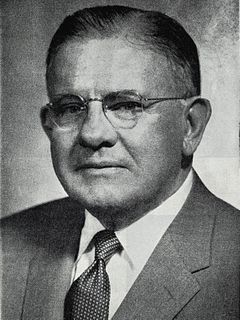Top 1059 Improvement Quotes & Sayings - Page 17
Explore popular Improvement quotes.
Last updated on September 19, 2024.
Although logging workouts seems to be a very simple action, it is often forgotten. Once several days go by, it is hard to remember what was done on a particular day. After working out for several months, you will feel an unbelievable sense of achievement when flipping through the pages of the log book. You should also notice a sign of improvement. 'Material proof' can be great motivation and will encourage you to keep on going.
Remember that Abraham Lincoln was a Whig far longer than he was a Republican. As a whole, the Whigs looked upon banks and corporations as a more efficient means of development; the Jacksonian Democrats thought they were the tools of the devil, but Whigs like Lincoln disagreed. During his presidency, Lincoln favored the re-construction of a national financial system, and his most important 'internal improvement' project was the Pacific railroad.
The prudent, penniless beginner in the world, labors for wages awhile, saves a surplus with which to buy tools or land, for himself; then labors on his own account another while, and at length hires another new beginner to help him. This, say its advocates, is free labor-the just and generous, and prosperous system, which opens the way for all-gives hope to all, and energy, and progress, and improvement of condition to all.
Masonry, according to the general acceptation of the term, is an art founded on the principles of geometry, and devoted to the service and convenience of mankind. But Freemasonry, embracing a wider range and having a nobler object in view, namely, the cultivation and improvement of the human mind, may with more propriety be called a science, inasmuch as, availing itself of the terms of the former, it inculcates the principles of the purest morality, though its lessons are for the most part veiled in allegory and illustrated by symbols.
It is easy to prescribe improvement for others; it is easy to organize something, to institutionalize this or that, to pass laws, multiply bureaucratic agencies, form pressure groups, start revolutions, change forms of government, tinker at political theory. The fact that these expedients have been tried unsuccessfully in every conceivable combination for 6,000 years has not noticeably impaired a credulous unintelligent willingness to keep on trying them again and again.
Evolution is variation and selection. If you can vary alternatives, and select among them, improvement emerges. It works in technology, in apps, and in life itself. What stunned me about seasteading is that it's a technology for variation and selection in governance itself. The reason some two hundred nation-states do a poor job of governing seven billion people is that they don't vary, and people don't select.
The power of growth, of improvement, the power to overcome all stagnation and break through every obstacle and transform a barren wasteland into a verdant field - that unstoppable power of hope resides right within your own heart. It wells up from the rich earth of your innermost being when you face the future without doubt or fear: "I can do more. I can grow. I can become a bigger and better human being."
This is how they justify not wanting to strive for self-improvement. It's how they explain their continued inaction. It's just an excuse. There are plenty of video clips on the Internet showing what I really look like. Some people even spread rumors about me and retouch my pictures to hurt me. But I don't take them seriously. I'm even flattered! It's what success is like. I'm happy I seem unreal to them, it means I'm doing a good job.
The age of warrior kings and of warrior presidents has passed. The nuclear age calls for a different kind of leadership.... a leadership of intellect, judgment, tolerance and rationality, a leadership committed to human values, to world peace, and to the improvement of the human condition. The attributes upon which we must draw are the human attributes of compassion and common sense, of intellect and creative imagination, and of empathy and understanding between cultures.
Christ did not come to civilize. He came to save. Civilization is not the solution; it does not destroy the works of the devil. All civilization aims at world improvement, at the gradual elimination of the curse; it is a process of evolution. It is like a man who is suffering from a terrible disease, and the physician who comes to help him gives him a salve to apply. He treats the skin symptoms but the source of the disease he never considers and never touches. Such is a boasted and progressive civilization. It is a delusion.
We must be willing to be completely ordinary people, which means accepting ourselves as we are without trying to become greater, purer, more spiritual, more insightful. If we can accept our imperfections as they are, quite ordinarily, then we can use them as part of the path. But if we try to get rid of our imperfections, then they will be enemies, obstacles on the road to our ‘self-improvement’.
Our rulers will best promote the improvement of the nation by strictly confining themselves to their own legitimate duties, by leaving capital to find its most lucrative course, commodities their fair price, industry and intelligence their natural reward, idleness and folly their natural punishment, by maintaining peace, by defending property, by diminishing the price of law, and by observing strict economy in every department of the state. Let the Government do this: the People will assuredly do the rest.
The powers delegated by the proposed Constitution to the federal government are few and defined. Those which are to remain in the State governments are numerous and indefinite. The former will be exercised principally on external objects, as war, peace, negotiation and foreign commerce. ... The powers reserved to the several States will extend to all the objects which in the ordinary course of affairs, concern the lives and liberties, and properties of the people, and the internal order, improvement and prosperity of the State.
The young man who addresses himself in stern earnest to organizing his life-his habits, his associations, his reading, his study, his work-stands far more chance of rising to a position affording him opportunity to exercise his organizing abilities than the fellow who dawdles along without chart or compass, without plan or purpose, without self-improvement and self-discipline.
Here I encounter the most popular fallacy of our times. It is not considered sufficient that the law should guarantee to every citizen the free and inoffensive use of his faculties for physical, intellectual and moral self-improvement. Instead, it is demanded that the law should directly extend welfare, education, and morality throughout the nation. This is the seductive lure of socialism. And I repeat: these two uses of the law are in direct contradiction to each other.
Maybe the growth of "God" signifies the existence of God. That is: if history naturally pushes people toward moral improvement, toward moral growth, and their God, as they conceive their God, grows accordingly, becoming morally richer, then maybe this growth is evidence of some higher purpose, and maybe - conceivably - the source of that purpose is worthy of the name divinity.
Love always seeks for betterment, for ways of making life more workable, joyful, whole, and beautiful. Love examines every option available to bring about an improvement in life. This kind of discernment is an act of decency, not an act of judgment. Rigid philosophies of judgment will seek to establish structure as a substitute for decency, control as a substitute for trust, and the mind as a substitute for higher awareness.
The quintessential revolution is that of the spirit, born of an intellectual conviction of the need for change in those mental attitudes and values which shape the course of a nation's development. A revolution which aims merely at changing official policies and institutions with a view to an improvement in material conditions has little chance of genuine success. Without a revolution of the spirit, the forces which produced the iniquities of the old order would continue to be operative, posing a constant threat to the process of reform and regeneration.
I believe that now and always the conscious selection of the best for reproduction will be impossible; that to propose it is to display a fundamental misunderstanding of what individuality implies. The way of nature has always been to slay the hindmost, and there is still no other way, unless we can prevent those who would become the hindmost being born. It is in the sterilization of failure, and not in the selection of successes for breeding, that the possibility of an improvement of the human stock lies.
Progress, far from consisting in change, depends on retentiveness. When change is absolute there remains no being to improve and no direction is set for possible improvement: and when experience is not retained, as among savages, infancy is perpetual. Those who cannot remember the past are condemned to repeat it. In the first stage of life the mind is frivolous and easily distracted; it misses progress by failing in consecutiveness and persistence. This is the condition of children and barbarians, in which instinct has learned nothing from experience.
In the mid-1980s, operating problems took [nuclear] plants off-line so often that, on an annual basis, they operated at only about 55 percent of their rated total generating capacity. Today, as a result of several decades of experience and an intense focus on performance ... nuclear plants in the United States operate at over 90 percent of capacity. That improvement in operating efficiently is so significant in its impact that it can almost be seen as a new source in electric power itself.
The only perfect love to be found on earth is not sexual love, which is riddled with hostility and insecurity, but the wordless commitment of families, which takes as its model mother-love. This is not to say that fathers have no place, for father-love, with its driving for self-improvement and discipline, is also essential to survival, but that uncorrected father-love, father-love as it were practiced by both parents, is a way to annihilation.
No government by experts in which the masses do not have the chance to inform the experts as to their needs can be anything but an oligarchy managed in the interest of the few. And the enlightenment must proceed in ways which force the administrative specialists to take account of the needs. The world has suffered more from leaders and authorities than from the masses. The essential need ... is the improvement of the methods and conditions of debate, discussion and persuasion. That is the problem of the public.
I have no doubt that aggressively going after wrongdoing can result in real improvement. Fewer wrongdoers in city government means more honest employees; it means better city services; it means more efficient government. And punishing wrongdoing can have a strong ripple effect that deters others from going down the wrong path.
The ordinary naturalist is not sufficiently aware that when dogmatizing on what species are, he is grappling with the whole question of the organic world & its connection with the time past & with Man; that it involves the question of Man & his relation to the brutes, of instinct, intelligence & reason, of Creation, transmutation & progressive improvement or development. Each set of geological questions & of ethnological & zool. & botan. are parts of the great problem which is always assuming a new aspect.
Frequently, I have been asked if an experiment I have planned is pure or applied science; to me it is more important to know if the experiment will yield new and probably enduring knowledge about nature. If it is likely to yield such knowledge, it is, in my opinion, good fundamental research; and this is more important than whether the motivation is purely aesthetic satisfaction on the part of the experimenter on the one hand or the improvement of the stability of a high-power transistor on the other.
One of the leading causes of divorce is sexual incompatibility. Why not mandate premarital sex, overseen, of course, by the Marriage Board to ensure that it was carried out and completed as required? The final exam question could be: "Was it good for you two?" For good measure, the engaged couple should be required to work together on a home improvement project like installing a kitchen sink or finishing a basement. That's the ultimate test of a marital relationship.
That ideas should freely spread from one to another over the globe, for the moral and mutual instruction of man, and improvement of his condition, seems to have been peculiarly and benevolently designed by nature, when she made them, like fire, expansible over all space, without lessening their density in any point, and like the air in which we breathe, move, and have our physical being, incapable of confinement or exclusive appropriation.
The universalists, the idealists, the Utopians all aim too high. They give promises of an unattainable paradise, and by doing so they deceive mankind. Whatever label they wear, whether they call themselves Christians, Communists, humanitarians, whether they are merely sincere but stupid or wire-pullers and cynics, they are all makers of slaves. I myself have always kept my eye fixed on a paradise which, in the nature of things, lies well within our reach. I mean an improvement in the lot of the German people. (21st February 1945)
But though a funded debt is not in the first instance, an absolute increase of Capital, or an augmentation of real wealth; yet by serving as a New power in the operation of industry, it has within certain bounds a tendency to increase the real wealth of a Community, in like manner as money borrowed by a thrifty farmer, to be laid out in the improvement of his farm may, in the end, add to his Stock of real riches.
I don't think my playing style has really changed over the years; it's just gotten better. I can hear the improvement in comparing older records and later records. I'm referring to soloing ability, to having a better sound, to knowing chords better, and getting rhythmically stronger. It also has to do with ideas - learning how to edit your ideas and being better able to follow ideas out to a logical conclusion.
The Last Arrow transcends a moment or an issue. It is a call to move beyond self-indulgence to a life of sacrificial service. In The Last Arrow I address a broad spectrum of issues from the Syrian refugee crisis to the cultural epidemic of depression to the personal struggle of insignificance. The Last Arrow is a clarion call to make a difference in the world rather than a self-help book for personal self-improvement.
You must purge yourself before finding faults in others. When you see a mistake in somebody else, try to find if you are making the same mistake. This is the way to take judgment and to turn it into improvement. Do not look at others' bodies with envy or with superiority. All people are born with different constitutions. Never compare with others. Each one's capacities are a function of his or her internal strength. Know your capacities and continually improve upon them.
The correct relationship between the higher and lower classes, the appropriate mutual interaction between the two is, as such, the true underlying support on which the improvement of the human species rests. The higher classes constitute the mind of the single large whole of humanity; the lower classes constitute its limbs; the former are the thinking and designing [ Entwerfende ] part, the latter the executive part.
For centuries the most powerful argument for God's existence from the physical world was the so-called argument from design: Living things are so beautiful and elegant and so apparently purposeful, they could only have been made by an intelligent designer. But [Charles] Darwin provided a simpler explanation. His way is a gradual, incremental improvement starting from very simple beginnings and working up step by tiny incremental step to more complexity, more elegance, more adaptive perfection.
Besides the progress of industry and technique, we see a growing discontent among the masses; we see, besides the expansion ("expansion,", Fr.) of instruction, distrust and hatred expanding among nations ("s'étendre la méfiance et la haine entre," Fr.), that vie with one another ("qui rivalisent à l'envi," Fr.), by the increase of their armies and the improvement of their engines of murder ("engins meurtriers", Fr).
As I see it, there are two great forces of human nature: self-interest, and caring for others. Capitalism harnesses self-interest in a helpful and sustainable way, but only on behalf of those who can pay. Government aid and philanthropy channel our caring for those who can't pay. But to provide rapid improvement for the poor we need a system that draws in innovators and businesses in a far better way than we do today.
I learned that unless you start working, if you're frozen out of work, you will never learn the habits, the discipline, the values of cooperation and improvement unless you get a job, and that's what statistic show. It's, unless you get a job and keep it, you will not get out of poverty. If you do, you have a very good chance of working out of poverty.
If the Commission is to enquire into the conditions "to be observed," it is to be presumed that they will give the result of their enquiries; or, in other words, that they will lay down, or at least suggest, "rules" and "conditions to be (hereafter) observed" in the construction of bridges, or, in other words, embarrass and shackle the progress of improvement to-morrow by recording and registering as law the prejudices or errors of to-day. [Objecting to any interference by the State with the freedom of civil engineers in the conduct of their professional work.]
Even happiness itself may become habitual. There is a habit of looking at the bright side of things, and also of looking at the dark side. Dr. Johnson has said that the habit of looking at the best side of a thing is worth more to a man than a thousand pounds a year. And we possess the power, to a great extent, of so exercising the will as to direct the thoughts upon objects calculated to yield happiness and improvement rather than their opposites.
It does not, however, seem impossible that by an attention to breed, a certain degree of improvement, similar to that among animals, might take place among men. Whether intellect could be communicated may be a matter of doubt: but size, strength, beauty, complexion, and perhaps even longevity are in a degree transmissible... As the human race could not be improved in this way, without condemning all the bad specimens to celibacy, it is not probable, that an attention to breed should ever become general.
This country is going - be living better ten years from now than it is now. It will be living better in 20 years from now than ten years from now. The ingredients that made this country, you know, the miracle of the world - I mean we had a seven for one improvement in the average American standard of living in the 20th century.
Doubtless, we are as slow to conceive of Paradise as of Heaven, of a perfect natural as of a perfect spiritual world. We see how past ages have loitered and erred. "Is perhaps our generation free from irrationality and error? Have we perhaps reached now the summit of human wisdom, and need no more to look out for mental or physical improvement?" Undoubtedly, we are never so visionary as to be prepared for what the next hour may bring forth.
If the term education may be understood in so large a sense as to include all that belongs to the improvement of the mind, either by the acquisition of the knowledge of others or by increase of it through its own exertions, we learn by them what is the kind of education science offers to man. It teaches us to be neglectful of nothing - not to despise the small beginnings, for they precede of necessity all great things in the knowledge of science, either pure or applied.
The beginning of civilisation is the discovery of some useful arts, by which men acquire property, comforts, or luxuries. The necessity or desire of preserving them leads to laws and social institutions. The discovery of peculiar arts gives superiority to particular nations ... to subjugate other nations, who learn their arts, and ultimately adopt their manners;- so that in reality the origin as well as the progress and improvement of civil society is founded in mechanical and chemical inventions.
Understanding human nature must be the basis of any real improvement in human life. Science has done wonders in mastering the laws of the physical world, but our own nature is much less understood, as yet, than the nature of stars and electrons. When science learns to understand human nature, it will be able to bring a happiness into our lives which machines and the physical sciences have failed to create.
America did not need to be discovered because quite simply America had the American-Indians. There were whole groups of people that already lived there including very developed societies such as the Incas, the Aztecs, and the Mayans. But then came the European vision that saw the conquest as a source of advanced growth away from medieval Europe. The new revolutionary bourgeois trend formed a new perspective on what was democracy that they saw as an improvement to the democracy of ancient Greece.
We ought to give our friend pain if it will benefit him, but not to the extent of breaking off our friendship; but just as we make use of some biting medicine that will save and preserve the life of the patient. And so the friend, like a musician, in bringing about an improvement to what is good and expedient, sometimes slackens the chords, sometimes tightens them, and is often pleasant, but always useful.
Charity is not a virtue to expect in others only. It is the all-important Christian attribute to be found in ourselves. . . . We believe that charity must begin at home. Can we hope to be charitable to the stranger if love does not abound in the family? A sure step in the direction of improvement and progress in our own lives comes when we share with mother or father in their dependence as they shared with us in their productive years.... We cannot as children ignore our obligations to our parents by passing responsibility for their care to others. . . .
The idea that Christianity is basically a religion of moral improvement... has its roots in the liberal Protestantism of the late nineteenth century and early twentieth century... It is this stereotype which continues to have influence today... But then came the First World War... What had gone wrong was that the idea of sin had been abandoned by liberal Christianity as some kind of unnecessary hangover from an earlier and less enlightened period in Christian history.
The arts and sciences, in general, during the three or four last centuries, have had a regular course of progressive improvement. The inventions in mechanic arts, the discoveries in natural philosophy, navigation and commerce, and the advancement of civilization and humanity, have occasioned changes in the condition of the world and the human character which would have astonished the most refined nations of antiquity. A continuation of similar exertions is everyday rendering Europe more and more like one community, or single family.
I know not a better rule of reading the Scripture, than to read it through from beginning to end and when we have finished it once, to begin it again. We shall meet with many passages which we can make little improvement of, but not so many in the second reading as in the first, and fewer in the third than in the second: provided we pray to him who has the keys to open our understandings, and to anoint our eyes with His spiritual ointment.
[The church] is in its major part an opponent still of progress and improvement in all the ways that diminish suffering in the world, because it has chosen to label as morality a certain narrow set of rules of conduct which have nothing to do with human happiness; and when you say that this or that ought to be done because it would make for human happiness, they think that has nothing to do with the matter at all. "What has human happiness to do with morals? The object of morals is not to make people happy.
People are the common denominator of progress. So no improvement is possible with unimproved people, and advance is certain when people are liberated and educated. It would be wrong to dismiss the importance of roads, railroads, power plants, mills,and the other familiar furniture of economic development. But we are coming to realize that there is a certain sterility in economic monuments that stand alone in a sea of illiteracy. Conquest of illiteracy comes first.
Very little comes easily to our poor, benighted species (the first creature, after all, to experiment with the novel evolutionary inventions of self-conscious philosophy and art). Even the most "obvious," "accurate," and "natural" style of thinking or drawing must be regulated by history and won by struggle. Solutions must therefore arise within a social context and record the complex interactions of mind and environment that define the possibility of human improvement.
The champions of socialism call themselves progressives, but they recommend a system which is characterized by rigid observance of routine and by a resistance to every kind of improvement. They call themselves liberals, but they are intent upon abolishing liberty. They call themselves democrats, but they yearn for dictatorship. They call themselves revolutionaries, but they want to make the government omnipotent. They promise the blessings of the Garden of Eden, but they plan to transform the world into a gigantic post office. Every man but one a subordinate clerk in a bureau.
How many years did people hate Obamacare? Now there's a poll out there that says Obamacare's never been more popular. Really? Really? Just how stupid do you think we all are? After whatever it is, six years of rising premiums, lost coverage, horrible treatment, no access, now all of a sudden, and there hasn't been any improvement in enrollment.
The taboos that I have mentioned are extraordinarily harsh and numerous. They stand around nearly every subject that is genuinely important to man: they hedge in free opinion and experimentation on all sides. Consider, for example, the matter of religion. It is debated freely and furiously in almost every country in the world save the United States, but here the critic is silenced. The result is that all religions are equally safeguarded against criticism, and that all of them lose vitality. We protect the status quo, and so make steady war upon revision and improvement.


























































